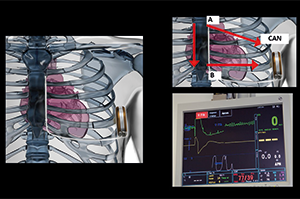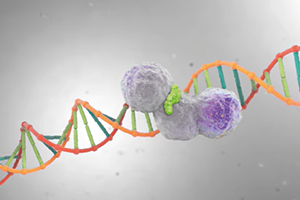All life around us, from bacteria and viruses to plants and animals, is made up of molecules and cells. How these units of life work together to make individuals as complex as ourselves is a key question to our understanding of health and disease. The Molecules and Cells Research Theme brings together more than 140 leading scientists to share knowledge and ideas across disciplinary boundaries to advance our understanding of the rules of life.
Current areas of focus include: DNA and chromatin; RNA and proteins; Cellular pathways and signalling; Cellular organisation and dynamics; Cell physiology and behaviour; Chemical biology and protein engineering.
Impact Case Studies
 |
Tackling cardiac rhythm abnormalities to extend and improve quality of lifeProblems with the rhythm of the heart (arrhythmias) are a major cause of sudden cardiac arrest, causing 4.5 million deaths annually worldwide. Research at the University of Cambridge from 2002 to 2019 aimed at understanding the fundamental biochemistry of electrical errors in the heart has led to the creation of the first subcutaneous implantable cardioverter defibrillator (S-ICD). Since 2013, this device has been used to treat nearly 90,000 patients across 42 countries. Read |
 |
Revolutionising cancer therapy via the DNA-damage responseResearch at the University of Cambridge into DNA repair inhibitors led to a novel cancer therapy, Olaparib, which has been approved for ovarian, breast, pancreatic and prostate cancer treatment. Stephen Jackson is a world-class pioneer in DNA damage repair mechanisms and was one of the first to attempt to translate his basic research in this area to drug discovery, recognising that faulty DNA damage repair pathways in cancers could be exploited therapeutically. Read |
